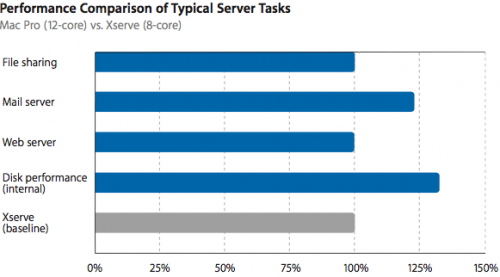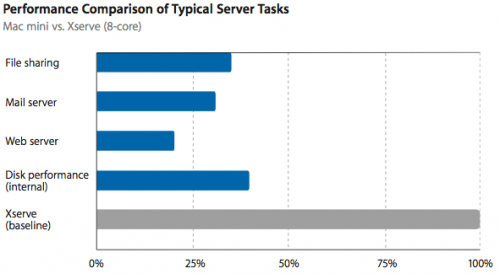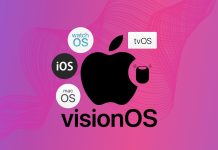 Apple had a nice little server lineup a couple of years ago. They had the Xserve RAID and the Xserve, both of which Apple believed were by far the best systems in their class for professional environments.
Apple had a nice little server lineup a couple of years ago. They had the Xserve RAID and the Xserve, both of which Apple believed were by far the best systems in their class for professional environments.
On Feburary 19, 2008, Apple discontinued the Xserve RAID, and today Apple has discontinued the Xserve.
A lot of IT professionals are pretty unhappy at the moment, and it seems that Apple’s answer to their concerns points toward the inclusion of Mac mini servers and Mac Pros as viable alternatives. Don’t get me wrong. Both of those machines have their strengths, but I don’t really see many IT professionals flocking to the mini or Mac Pro as legitimate alternatives.
Apple has posted an Xserve Transition PDF on their website that outlines benchmarks for their other options (Mac mini and Mac Pro) alongside the current Xserve, and it’s pretty obvious that they think the Mac Pro is a better alternative. But, what’s laughable is that they even do a performance comparison between the Mac mini server and the baseline Xserve.
Lesson Learned
In recent months, Apple has been pushing pretty hard to get into businesses’ IT infrastructures around the world, and they’ve been doing a great job, but this move is a giant red flag warning to IT professionals.
Products get discontinued all the time, but in a corporate environment, where stability is the number one objective, will IT professionals look at this as a major precedent when it comes to using Apple products on their networks? I would certainly think twice about adopting Apple hardware, knowing that Apple drops products overnight, without much warning.
That practice may work in the consumer market, but in the business world, it gets you left behind for other alternatives.
Article Via Electronista








